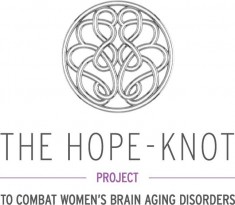Shades of Grey: When Memory Fades
by Jayne MacAuley for Zoomers:A gender gap means a research gap for women’s aging brains.When Lynn Posluns learned that even now, basic-level scientific studies prefer to use male rats for Alzheimer’s disease studies, she wondered why. It turns out hormones in the brains of female rats complicate the studies. (For example, lady rats have to be monitored so scientists know where they are in their menstrual cycle.)But what good was using only male rats, when 70 per cent of newly diagnosed people with Alzheimer’s disease will be female, Posluns thought. The former director of the Baycrest Foundation decided to found the Women’s Brain Health Initiative to raise money that will fund innovative research into women’s brain aging disorders by foremost institutions throughout the world.And what better way to showcase the consequences of a woman’s failing brain health than to hold a preview of a captivating Canadian film that shows exactly that. Still Mine, a film co-written and directed by Michael McGowan, premiers in theatres on May 3, 2013.Although not a documentary, it’s based on real people in rural New Brunswick. Craig Morrison, 88, played by James Cromwell, 73, (who won a Canadian Screen Award for Best Lead Actor for the part) recognizes that his wife’s descent into dementia means their old farmhouse will no longer suit her needs. When he decides to build a smaller, safer home, he runs afoul of the local building inspector.While his troubles mount, the love shared by the couple proves warm – very warm – and resilient. The splendid actor, Geneviève Bujold, 70, (as Irene, Morrison’s wife), strong as titanium, yet so petite and pretty, captures Irene’s puzzlement, humour, and occasional anger so naturally the situation feels all the more poignant. (At one point, the director reports, she had the film’s crew in tears.)Cromwell’s Craig is every farmer you ever met – pragmatic, capable of fixing or building everything – as well as a man still in love with his wife after 60-some years of marriage. Their relationship centres the picture in a poignant yet humorous way. In spite of its portrayal of encroaching dementia, the film never feels maudlin or unbearably grim.It does feel real, however. McGowan used his observation of his father-in-law’s experience in crafting Irene’s journey into dementia, so Irene’s experience sadly rings true.Still Mine entertains, but by opening a window on one family’s effort to cope with the loss of their mother and wife to dementia, it focuses light on the unsolved issues raised by dementia and Alzheimer’s disease. The Women’s Brain Health Initiative hopes the money raised for research will eventually provide the answers that will help women and families everywhere avoid the awful situation where women disappear – without leaving the room.The Hope-Knot ProjectToronto jeweller Mark Lash, a board member, has designed a silver pin for the Women’s Brain Initiative in the form of a Hope-Knot. Look closely at the circular brooch and you’ll note its loops resemble the brain. And unlike awareness ribbons or rubber bracelets, the pins can be worn with anything, even on the dressiest of occasions.The Hope-Knot is a reminder of all the women in your life mean to you – mother, daughters, grandmothers, sisters, aunts, and friends – and how much they enrich your life. (They’re also available as cufflinks for men, who like Still Mine’s Craig Morrison, are equally dependent on female relatives, friends and colleagues.) Will you forget to support this important movement to find answers through female-based research? We hope not! The Hope-Knot is available at www.hopeknot.org. Source: http://bit.ly/11FilBwImage: Still Mine, a film starring James Cromwell and Genevieve Bujold, and directed by Michael McGowan
Source: http://bit.ly/11FilBwImage: Still Mine, a film starring James Cromwell and Genevieve Bujold, and directed by Michael McGowan
